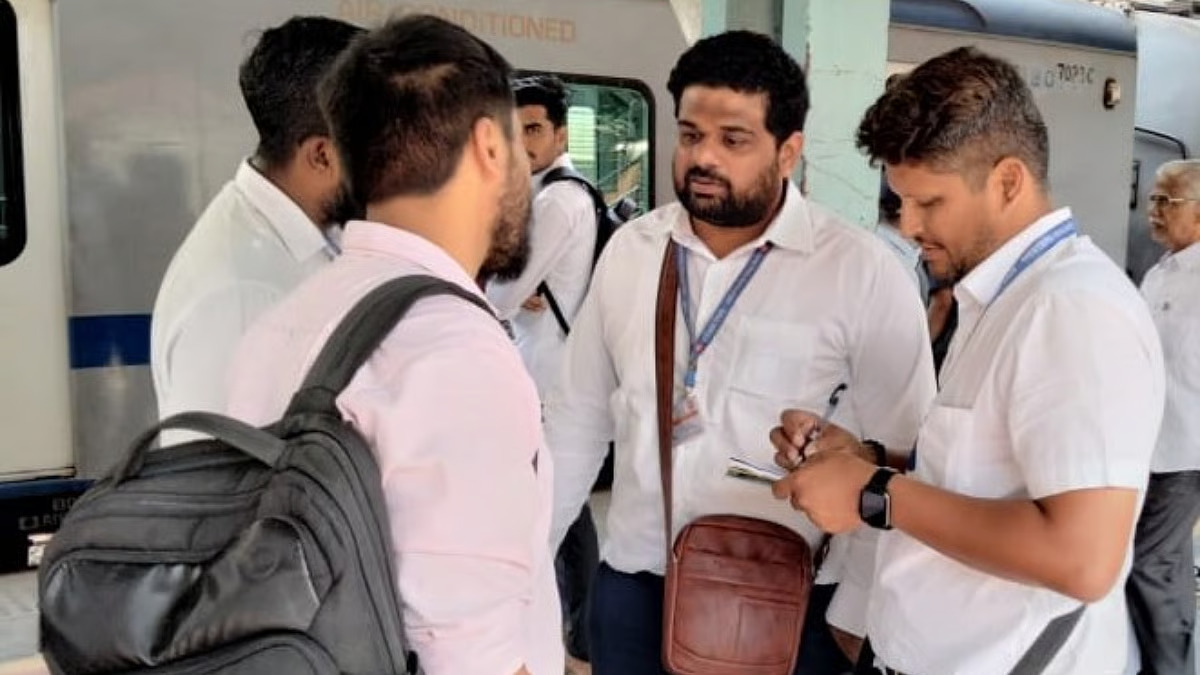Mumbai’s suburban rail network, the lifeline of the city, has launched a targeted crackdown on unauthorised travel in first-class compartments, aiming to restore order, ensure fare integrity, and enhance commuter experience across the city’s crowded trains. Starting this week, Central Railway’s Mumbai Division is deploying ticket-checking squads during peak hours in a rotating manner, supported by Railway Protection Force (RPF) personnel.
The exercise, which will continue throughout June and beyond, is designed to inspect all first-class coaches thoroughly and ensure that only valid ticket-holders occupy premium seats. The move follows growing complaints from genuine first-class commuters who have been consistently raising concerns over overcrowding and misuse of premium space by ticketless or second-class passengers. According to senior officials, this renewed drive seeks to protect the rights of commuters who pay extra for enhanced comfort and travel convenience. The Central Railway has made it clear that irregular travellers caught without valid first-class tickets will be fined on the spot. In cases where commuters refuse or fail to pay the fine, they will be handed over to station authorities at the next scheduled stop for further legal proceedings.
On the first day of the initiative, enforcement teams apprehended over 100 unauthorised travellers in the morning peak hours alone, collecting fines totalling ₹33,375. During the evening rush, an additional 89 offenders were caught, adding ₹29,705 to the total collected. These numbers underline the magnitude of fare evasion in Mumbai’s local trains and the urgent need for sustained action. Officials further revealed that over 113,600 cases of irregular travel in first-class compartments were recorded in the past year, leading to the recovery of ₹3.79 crore in penalties—figures that underscore the scale of the issue. This initiative builds on the positive outcomes of a similar campaign implemented earlier for the air-conditioned (AC) locals. That drive significantly improved fare compliance and received encouraging feedback from regular commuters who appreciated the presence of enforcement personnel ensuring accountability and order.
Beyond revenue protection, officials emphasised that the effort reflects Central Railway’s broader commitment to service quality and sustainability. With the suburban railway system carrying over 4 million passengers daily and operating more than 1,800 services, the integrity of ticketing systems is critical not just for revenue, but also for delivering a fair, efficient, and dignified public transport experience. Western Railway has also reported progress in its own anti-ticketless travel campaigns. In April alone, it recovered over ₹21 crore in fines, indicating that fare evasion is a system-wide issue that both zones are actively tackling. The coordinated efforts of ticket-checkers and RPF staff are essential in ensuring smooth execution and commuter cooperation.
Public transport experts view this crackdown as more than a policing exercise. They argue that it is a necessary correction in a network that too often sees rules bypassed at the expense of those who follow them. Enforcing premium travel standards, they believe, is key to keeping first-class travel desirable and sustainable. The broader implication is that such initiatives reaffirm public trust in the fairness of the system, encouraging more people to pay for upgraded services when they know their comfort will be safeguarded. For this effort to succeed in the long term, it will require more than manpower. Experts are advocating for the integration of smarter technologies—such as mobile ticket validations, automated gates, and data-driven deployment of checking squads. They also recommend more signage, real-time public messaging, and awareness campaigns to create a behavioural shift among habitual violators.
As of now, Central Railway has urged all commuters to travel with valid tickets and cooperate with enforcement officials. Officials have reiterated that this is not a punitive campaign but a necessary action to uphold standards, prevent revenue loss, and ensure that the travel experience for genuine first-class passengers remains what they have paid for—safe, orderly, and premium. In a city where local trains are not just a mode of travel but an essential public service, this initiative represents a push toward equitable access and civic responsibility.
While challenges remain, especially around continuous enforcement and resource constraints, the new ticket-checking drive is a clear signal that Central Railway is committed to reshaping commuter behaviour and improving service reliability for all.
Also Read : Railway Minister Haryana CM Unveil Mega Cargo Terminal


